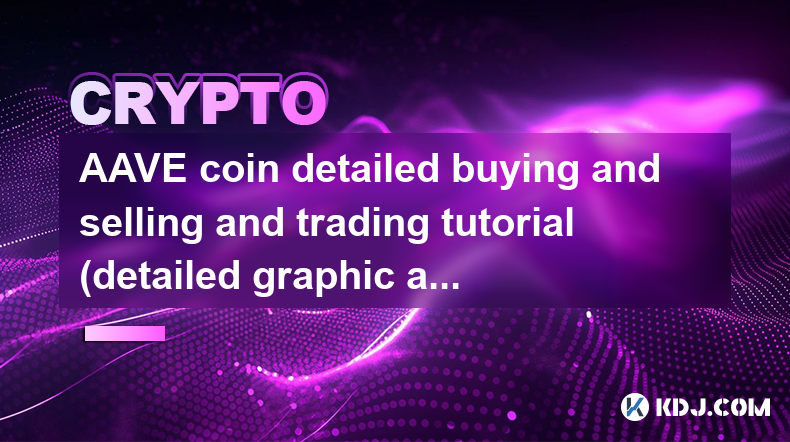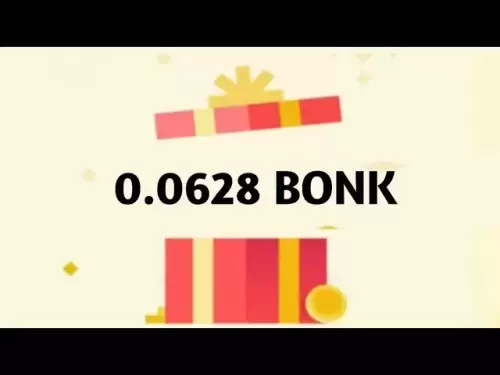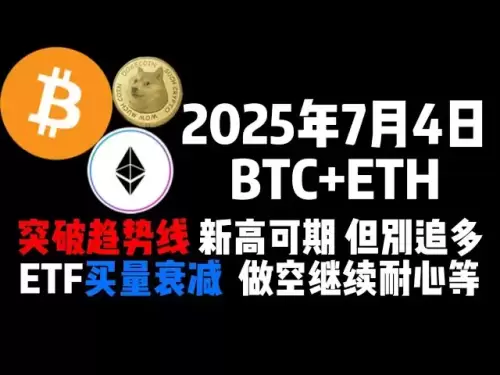-
 Bitcoin
Bitcoin $108,043.3894
-1.71% -
 Ethereum
Ethereum $2,519.1878
-3.09% -
 Tether USDt
Tether USDt $1.0004
-0.01% -
 XRP
XRP $2.2231
-2.72% -
 BNB
BNB $655.3607
-1.06% -
 Solana
Solana $148.3620
-2.84% -
 USDC
USDC $1.0000
0.00% -
 TRON
TRON $0.2838
-0.37% -
 Dogecoin
Dogecoin $0.1648
-4.79% -
 Cardano
Cardano $0.5759
-3.97% -
 Hyperliquid
Hyperliquid $38.4598
-5.19% -
 Sui
Sui $2.9005
-4.22% -
 Bitcoin Cash
Bitcoin Cash $481.1531
-3.80% -
 Chainlink
Chainlink $13.1936
-4.50% -
 UNUS SED LEO
UNUS SED LEO $9.0471
0.41% -
 Avalanche
Avalanche $17.9444
-4.20% -
 Stellar
Stellar $0.2378
-2.60% -
 Toncoin
Toncoin $2.7850
-3.38% -
 Shiba Inu
Shiba Inu $0.0...01148
-3.75% -
 Litecoin
Litecoin $87.3159
-3.73% -
 Hedera
Hedera $0.1557
-3.02% -
 Monero
Monero $314.0980
-1.98% -
 Polkadot
Polkadot $3.3909
-5.10% -
 Dai
Dai $1.0001
0.00% -
 Ethena USDe
Ethena USDe $1.0002
-0.02% -
 Bitget Token
Bitget Token $4.4147
-3.74% -
 Uniswap
Uniswap $6.9933
-9.59% -
 Pepe
Pepe $0.0...09661
-6.72% -
 Aave
Aave $264.1417
-6.16% -
 Pi
Pi $0.4705
-5.23%
AAVE coin detailed buying and selling and trading tutorial (detailed graphic and text explanation)
When choosing a cryptocurrency exchange for AAVE trading, prioritize reputable exchanges with robust security measures, a user-friendly interface, and support for both AAVE and your desired funding currency.
Dec 27, 2024 at 12:08 am

AAVE Coin: A Detailed Buying, Selling, and Trading Tutorial
Key Points:
- Step 1: Choosing a Cryptocurrency Exchange
- Step 2: Creating an Account on the Exchange
- Step 3: Funding Your Exchange Account
- Step 4: Buying AAVE
- Step 5: Selling AAVE
- Step 6: Trading AAVE
Step 1: Choosing a Cryptocurrency Exchange
When selecting a cryptocurrency exchange to trade AAVE, consider the following factors:
- Security: Choose an exchange with strong security measures to protect your funds.
- Reputability: Opt for reputable exchanges with proven track records.
- Supported Cryptocurrencies: Ensure the exchange you choose supports both AAVE and your desired funding currency.
- Fees: Compare transaction fees and trading fees across different exchanges.
- User Interface: Select an exchange with a user-friendly interface that suits your trading style.
Step 2: Creating an Account on the Exchange
Once you choose an exchange, follow these steps to create an account:
- Visit the exchange's website and click on "Sign Up" or "Create Account."
- Provide your personal information, such as your name, email address, and phone number.
- Verify your identity by submitting a government-issued ID or completing a KYC (Know Your Customer) verification process.
- Set a strong password that meets the exchange's security requirements.
Step 3: Funding Your Exchange Account
To buy AAVE, you need to deposit funds into your exchange account:
- Choose the method of funding the account, such as bank transfer, credit card, or third-party payment services.
- Input the amount you wish to deposit and provide any required payment details.
- Wait for your deposit to be processed, which can take a few minutes to several days depending on the method used.
Step 4: Buying AAVE
To buy AAVE:
- Navigate to the "Exchange" or "Markets" section of the exchange.
- Search for the AAVE/USDT or AAVE/BTC trading pair.
- Select the "Buy" option and choose the type of order you wish to place (market order, limit order, or stop-limit order).
- Input the amount of AAVE you wish to buy or specify the price you are willing to pay for each AAVE token.
- Review your order details and confirm the transaction.
Step 5: Selling AAVE
To sell AAVE:
- Navigate to the "Exchange" or "Markets" section of the exchange.
- Search for the AAVE/USDT or AAVE/BTC trading pair.
- Select the "Sell" option and choose the type of order you wish to place (market order, limit order, or stop-limit order).
- Input the amount of AAVE you wish to sell or specify the price you are willing to accept for each AAVE token.
- Review your order details and confirm the transaction.
Step 6: Trading AAVE
To trade AAVE:
- Navigate to the "Exchange" or "Markets" section of the exchange.
- Search for the AAVE/USDT or AAVE/BTC trading pair.
- Analyze the market charts, order book, and recent trading activity to formulate your trading strategy.
- Select the "Buy" or "Sell" option and choose the type of order you wish to place (market order, limit order, or stop-limit order).
- Monitor your trades closely and adjust your strategy as necessary to maximize the potential return on investment.
FAQs
What is the difference between buying and selling AAVE?
- Buying AAVE involves acquiring the token to hold or potentially profit from future price appreciation.
- Selling AAVE involves disposing of the token to realize profit or loss on a previous investment.
Which order types are available for trading AAVE?
- Market Order: Executes the trade immediately at the current market price.
- Limit Order: Sets a specific price at which you are willing to buy or sell AAVE.
- Stop-Limit Order: Places a limit order that only becomes active when a specific price threshold is reached.
What factors influence the price of AAVE?
- Supply and demand dynamics
- Market sentiment and speculation
- News and announcements related to AAVE and the DeFi industry
- Interest rates and economic conditions
- Regulatory developments and crypto market sentiment
Disclaimer:info@kdj.com
The information provided is not trading advice. kdj.com does not assume any responsibility for any investments made based on the information provided in this article. Cryptocurrencies are highly volatile and it is highly recommended that you invest with caution after thorough research!
If you believe that the content used on this website infringes your copyright, please contact us immediately (info@kdj.com) and we will delete it promptly.
- Bitcoin's Pattern Break: Are HODLers the Key to the Next Surge?
- 2025-07-04 18:50:12
- Bitcoin Price, Trump's Bill, and the $150K Dream: A NYC Take
- 2025-07-04 19:50:12
- Ethereum, LILPEPE, and the July Bounce: Will Pepe Steal ETH's Thunder?
- 2025-07-04 19:10:12
- Binance Institutional Loans: Unlocking 4x Leverage and Zero Interest for Whales
- 2025-07-04 19:15:12
- Bitcoin Bull Run: Analysts Eye Peak in Late 2025?
- 2025-07-04 19:20:13
- Pepe Indicators, Bullish Forecast: Can the Meme Coin Rally?
- 2025-07-04 19:25:12
Related knowledge

How to customize USDT TRC20 mining fees? Flexible adjustment tutorial
Jun 13,2025 at 01:42am
Understanding USDT TRC20 Mining FeesMining fees on the TRON (TRC20) network are essential for processing transactions. Unlike Bitcoin or Ethereum, where miners directly validate transactions, TRON uses a delegated proof-of-stake (DPoS) mechanism. However, users still need to pay bandwidth and energy fees, which are collectively referred to as 'mining fe...

USDT TRC20 transaction is stuck? Solution summary
Jun 14,2025 at 11:15pm
Understanding USDT TRC20 TransactionsWhen users mention that a USDT TRC20 transaction is stuck, they typically refer to a situation where the transfer of Tether (USDT) on the TRON blockchain has not been confirmed for an extended period. This issue may arise due to various reasons such as network congestion, insufficient transaction fees, or wallet-rela...

How to cancel USDT TRC20 unconfirmed transactions? Operation guide
Jun 13,2025 at 11:01pm
Understanding USDT TRC20 Unconfirmed TransactionsWhen dealing with USDT TRC20 transactions, it’s crucial to understand what an unconfirmed transaction means. An unconfirmed transaction is one that has been broadcasted to the blockchain network but hasn’t yet been included in a block. This typically occurs due to low transaction fees or network congestio...

How to check USDT TRC20 balance? Introduction to multiple query methods
Jun 21,2025 at 02:42am
Understanding USDT TRC20 and Its ImportanceUSDT (Tether) is one of the most widely used stablecoins in the cryptocurrency market. It exists on multiple blockchain networks, including TRC20, which operates on the Tron (TRX) network. Checking your USDT TRC20 balance accurately is crucial for users who hold or transact with this asset. Whether you're sendi...

What to do if USDT TRC20 transfers are congested? Speed up trading skills
Jun 13,2025 at 09:56am
Understanding USDT TRC20 Transfer CongestionWhen transferring USDT TRC20, users may occasionally experience delays or congestion. This typically occurs due to network overload on the TRON blockchain, which hosts the TRC20 version of Tether. Unlike the ERC20 variant (which runs on Ethereum), TRC20 transactions are generally faster and cheaper, but during...

The relationship between USDT TRC20 and TRON chain: technical background analysis
Jun 12,2025 at 01:28pm
What is USDT TRC20?USDT TRC20 refers to the Tether (USDT) token issued on the TRON blockchain using the TRC-20 standard. Unlike the more commonly known ERC-20 version of USDT (which runs on Ethereum), the TRC-20 variant leverages the TRON network's infrastructure for faster and cheaper transactions. The emergence of this version came as part of Tether’s...

How to customize USDT TRC20 mining fees? Flexible adjustment tutorial
Jun 13,2025 at 01:42am
Understanding USDT TRC20 Mining FeesMining fees on the TRON (TRC20) network are essential for processing transactions. Unlike Bitcoin or Ethereum, where miners directly validate transactions, TRON uses a delegated proof-of-stake (DPoS) mechanism. However, users still need to pay bandwidth and energy fees, which are collectively referred to as 'mining fe...

USDT TRC20 transaction is stuck? Solution summary
Jun 14,2025 at 11:15pm
Understanding USDT TRC20 TransactionsWhen users mention that a USDT TRC20 transaction is stuck, they typically refer to a situation where the transfer of Tether (USDT) on the TRON blockchain has not been confirmed for an extended period. This issue may arise due to various reasons such as network congestion, insufficient transaction fees, or wallet-rela...

How to cancel USDT TRC20 unconfirmed transactions? Operation guide
Jun 13,2025 at 11:01pm
Understanding USDT TRC20 Unconfirmed TransactionsWhen dealing with USDT TRC20 transactions, it’s crucial to understand what an unconfirmed transaction means. An unconfirmed transaction is one that has been broadcasted to the blockchain network but hasn’t yet been included in a block. This typically occurs due to low transaction fees or network congestio...

How to check USDT TRC20 balance? Introduction to multiple query methods
Jun 21,2025 at 02:42am
Understanding USDT TRC20 and Its ImportanceUSDT (Tether) is one of the most widely used stablecoins in the cryptocurrency market. It exists on multiple blockchain networks, including TRC20, which operates on the Tron (TRX) network. Checking your USDT TRC20 balance accurately is crucial for users who hold or transact with this asset. Whether you're sendi...

What to do if USDT TRC20 transfers are congested? Speed up trading skills
Jun 13,2025 at 09:56am
Understanding USDT TRC20 Transfer CongestionWhen transferring USDT TRC20, users may occasionally experience delays or congestion. This typically occurs due to network overload on the TRON blockchain, which hosts the TRC20 version of Tether. Unlike the ERC20 variant (which runs on Ethereum), TRC20 transactions are generally faster and cheaper, but during...

The relationship between USDT TRC20 and TRON chain: technical background analysis
Jun 12,2025 at 01:28pm
What is USDT TRC20?USDT TRC20 refers to the Tether (USDT) token issued on the TRON blockchain using the TRC-20 standard. Unlike the more commonly known ERC-20 version of USDT (which runs on Ethereum), the TRC-20 variant leverages the TRON network's infrastructure for faster and cheaper transactions. The emergence of this version came as part of Tether’s...
See all articles

























































































